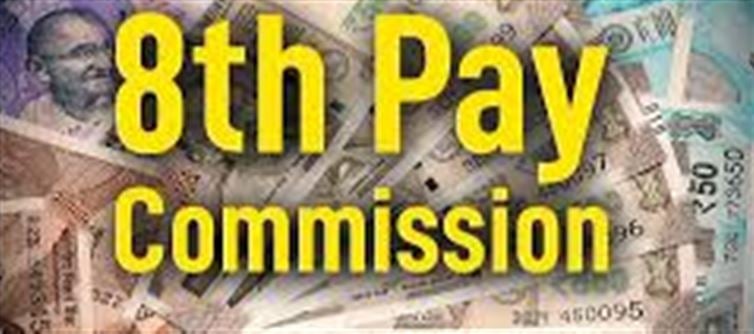
After months of anticipation, the Union cabinet has officially approved the Eighth Pay Commission (8th CPC), marking a major milestone for central government employees and pensioners across India. Here’s everything you need to know about this historic decision.
1. The Long-Awaited Approval
· The Eighth Pay Commission has finally received clearance from the Union Cabinet after a 10-month wait.
· The approval follows the NC-GCM (National Council – Joint Consultative Machinery) submitting the terms of reference (ToR) to the government in january 2025.
· This move is expected to impact millions of employees and pensioners under the central government’s payroll.
2. What Is the Eighth Pay Commission?
· The Pay Commission is a government-appointed body that reviews and recommends revisions in the salary structure, allowances, and pensions of central government staff.
· The 7th Pay Commission, implemented in 2016, had significantly revised pay scales.
· The 8th CPC aims to ensure fair compensation aligned with inflation, cost of living, and economic growth.
3. Key Focus Areas of the 8th CPC
· Salary Structure Overhaul: Expected to propose a new fitment factor, improving take-home pay.
· Pension Revision: Likely to revise Dearness Relief (DR) and streamline pension disbursement.
· Welfare Measures: Focus on employee well-being, retirement benefits, and wallet PLATFORM' target='_blank' title='digital-Latest Updates, Photos, Videos are a click away, CLICK NOW'>digital HR reforms.
4. Who Will Benefit?
· Over 48 lakh central government employees and nearly 70 lakh pensioners are expected to benefit from the upcoming recommendations.
· The new structure will also influence state government pay revisions and public sector pay policies.
5. Expected Implementation Timeline
· The commission formation process will begin shortly, followed by detailed studies and recommendations.
· Experts expect the final report by mid-2026, with implementation possibly by early 2027.
· Once operational, it could boost consumer spending and economic growth.
6. What Experts Say
· Economists suggest that the 8th CPC could stimulate domestic demand while balancing fiscal discipline.
· Employee unions have welcomed the decision, calling it a “long overdue relief” for government staff.
Bottom Line
The Union Cabinet’s approval of the Eighth Pay Commission signals a major move toward financial upliftment for government employees and pensioners. With this decision, the government aims to ensure economic parity, improved morale, and fair compensation across the public sector workforce.
Disclaimer:
The views and opinions expressed in this article are those of the author and do not necessarily reflect the official policy or position of any agency, organization, employer, or company. All information provided is for general informational purposes only. While every effort has been made to ensure accuracy, we make no representations or warranties of any kind, express or implied, about the completeness, reliability, or suitability of the information contained herein. Readers are advised to verify facts and seek professional advice where necessary. Any reliance placed on such information is strictly at the reader’s own risk.




 click and follow Indiaherald WhatsApp channel
click and follow Indiaherald WhatsApp channel